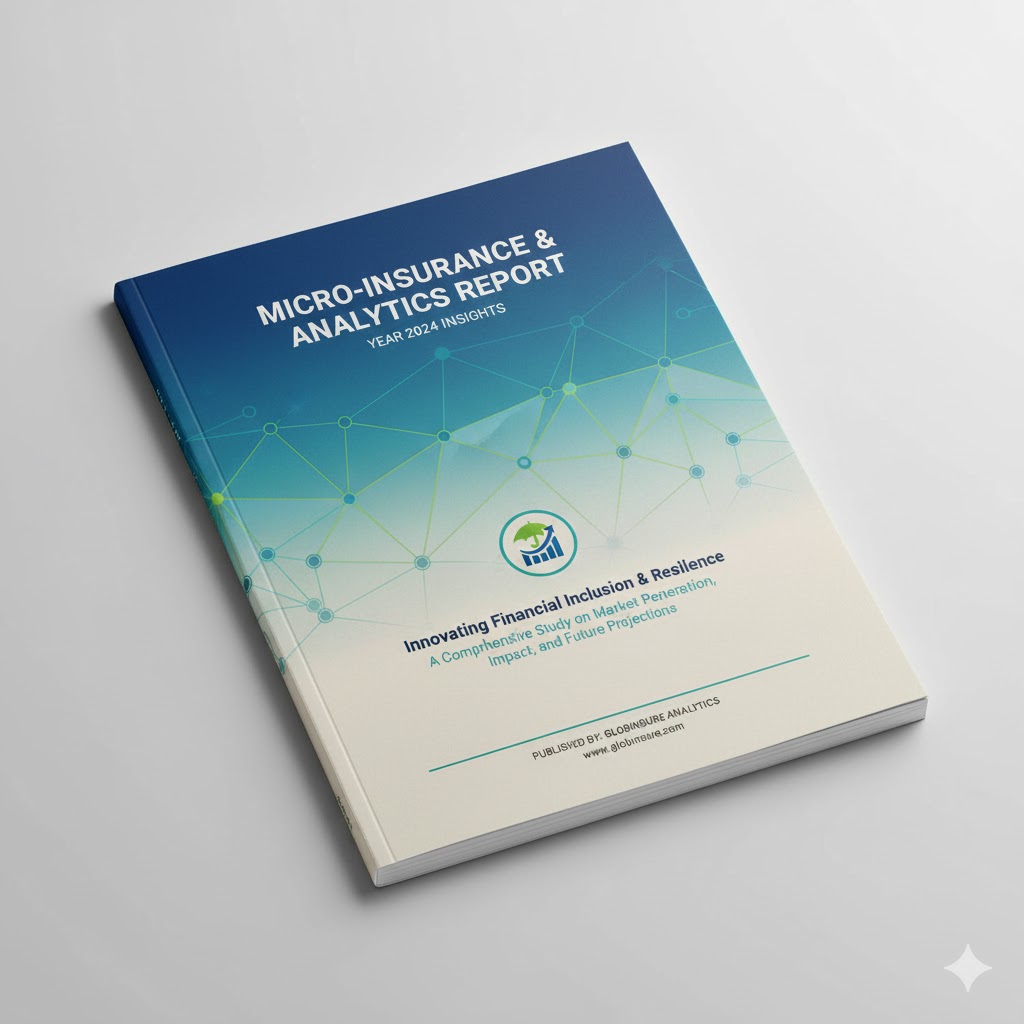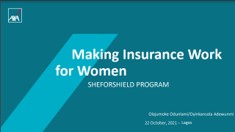Displaying 1 - 11 of 11

AXA MANSARD, NIGERIA – The case for insuring women for a better tomorrow
AXA Mansard, one of Nigeria's largest insurance providers, launched a focused strategy in 2016 to serve women in the retail insurance space. This initiative emerged from detailed market research identifying the unique needs of Nigerian women. AXA tailored products specifically for this segment and forged partnerships with women-led organizations to build trust and raise awareness about insurance. The case highlights practical lessons from product innovation, inclusive marketing, and collaboration as a pathway to greater gender equity in insurance.

COVID-19 and the Insurance Industry: Why a Gender-Sensitive Response Matters
COVID-19 and the Insurance Industry: Why a Gender-Sensitive Response Matters. This guidance note explores how the COVID-19 pandemic affected the gender gap in insurance access and services. It identifies four key areas where applying a gender lens can improve customer-centricity: operational practices, brand communication, product innovation, and new distribution channels. With practical insights from IFC's Women's Insurance Program, the paper offers a roadmap for insurers to better serve women during and beyond crisis periods.
Date Issued
2020
Region

Empowering Women Smallholder Farmers through Digital Microinsurance
Photo essay by ADFI and Pula showing gender-inclusive insurance design using mobile platforms and bundled climate microinsurance products across Kenya, Nigeria, and Zambia.

Empowering Women, Building Trust: A Case Study of a Women-Centric Insurance Solution in Nigeria
Describes FCMBeta Health, a women-focused micro health insurance product in Nigeria, bundled with micro-loans, offering hospital cash and maternity coverage. Over 90,000 enrolled by 2025.
Date Issued
2025
Topics
Region

GREEN DELTA, BANGLADESH – The case for insuring women for a better tomorrow
The case for insuring women for a better tomorrow. Green Delta Insurance Company (GDIC), a private non-life insurer in Bangladesh, partnered with IFC and others to design targeted insurance solutions for women. This note explores why women represent a key growth segment, how GDIC tailored its approach for Bangladeshi women, and the lessons learned from implementing this gender-inclusive strategy in the local market.
Date Issued
2020
Products
Region

INSULAR LIFE, PHILIPPINES – The case for insuring women for a better tomorrow
Insular Life, Philippines – This case study showcases how Insular Life (InLife), a leading life insurer and health maintenance organization in the Philippines, partnered with IFC and the Women Entrepreneurs Finance Initiative (We-Fi) to better serve Filipino women. Their gender-focused strategy positions InLife as both an inclusive insurer and an employer of choice for women. The report outlines their journey toward creating more accessible insurance solutions, workforce empowerment, and long-term impact on women's financial resilience.
Date Issued
2021
Products
Region

Making Access to Insurance Happen for People with Disabilities and Small Businesses and Micro-entrepreneurs
WFP piloted an inclusive weather-index insurance scheme for ~4,800 people in El Salvador, targeting women entrepreneurs and people with disabilities. The product enabled fast payouts during climate shocks and removed traditional credit-based enrollment barriers.

Making Insurance Work for Women - SHEFORSHIELD PROGRAM
Making Insurance Work for Women – SHEFORSHIELD PROGRAM. Information on the insurance sector in Colombia in 2020, inclusive insurance premiums written, financial inclusion institutional framework, public-private actions and lessons learned/challenges, with a focus on gender-specific insurance innovation and outreach in Sub-Saharan Africa, particularly Nigeria.

MALAYAN INSURANCE, PHILIPPINES - The case for insuring women for a better tomorrow
This World Bank report analyzes how Philippine insurers adapted to COVID-19 and how their inclusive insurance models helped maintain resilience for over 38 million microinsurance policyholders. The study highlights product innovations, digital transformation, and lessons for future crisis response through inclusive insurance strategies.
Date Issued
2020
Topics
Region

OKO for UN WOMEN & UNCDF: Case study
An index-based crop insurance product tailored specifically for women smallholder farmers in Mali. This inclusive approach improves gender equity and strengthens financial protection for rural women by providing climate-resilient risk coverage. The model aims to address both agricultural vulnerability and structural gender gaps in access to insurance.
Date Issued
2022
Topics
Region

World Food Programme's Sahel Climate Catastrophe Layer
The document describes the Sahel Climate Catastrophe Layer (SCCL) by the World Food Programme (WFP), a parametric insurance covering vulnerable populations against extreme droughts in Burkina Faso, Mali, and Niger. The initiative enables rapid, pre-financed disaster response, complements national risk financing tools, and strengthens regional climate resilience.
Date Issued
2025
Topics
Region
